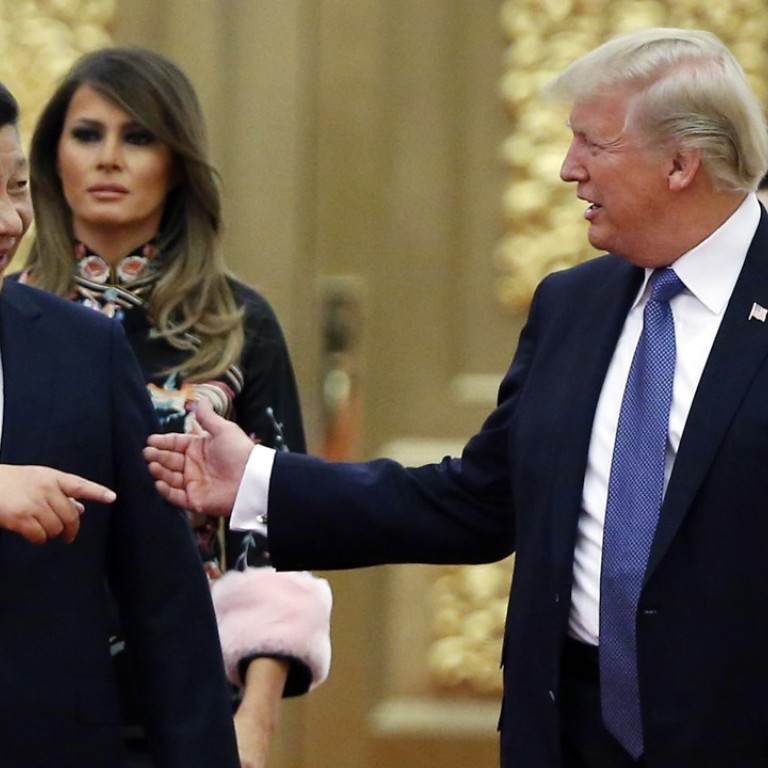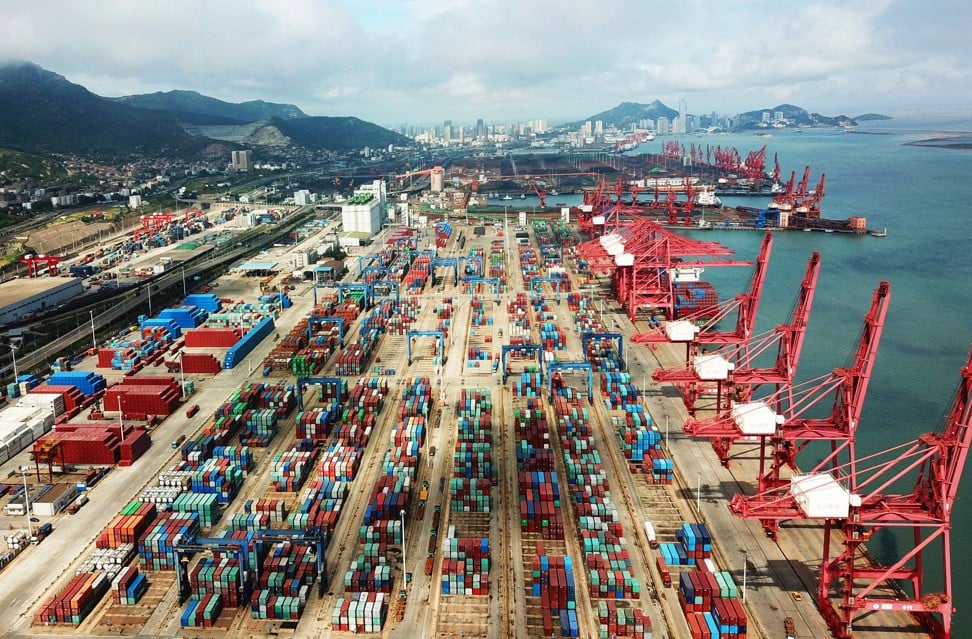
China’s two big mistakes in trade war may lead the country into middle-income trap
After misjudging Donald Trump and misjudging the alliance between Washington and Brussels, Beijing needs to act fast, writes Zhang Lin
Beijing has made two mistakes in the trade war with Washington, for which China will pay a heavy price.
The first is that the Chinese leadership misjudged US President Donald Trump. Beijing wrongly thought that Trump was just a businessman, regarding his trade war threats as bluffing ahead of the midterm elections. But in fact, Washington had already made clear in its National Defence Strategy report – released months before the dispute escalated – that the US would no longer tolerate Beijing’s trade and economic practices. The message was that Beijing could not earn money from the United States while at the same time posing a challenge to it.
Beijing’s second mistake was that it misjudged the alliance between the US and the European Union, and had hoped, unrealistically, to form a united trade front with Brussels against Washington.
How moderates were shut out of Trump’s inner US-China trade circle
While there is plenty of disharmony in relations across the Atlantic – for instance, Britain leading Germany and France to join the China-led Asian Infrastructure Investment Bank despite the US objecting – the Western democracies still share the same core values.
The latest US-EU trade statement sends another message to Beijing – that Washington and Brussels will “work closely together with like-minded partners” to address a long list of issues such as “intellectual property theft, forced technology transfers, industrial subsidies, distortions created by state-owned enterprises, and overcapacity”. It’s not hard to guess which country is not on the list of “like-minded partners”.
While China won’t be shut out of world trade overnight – high tariffs may cause some pain but trade flows won’t just shrivel up – and foreign businesses will continue to operate in the Chinese market, it looks like the golden age for exports since the country entered the WTO in 2001 may be coming to an end.
Shrinking foreign trade could hurt China’s economy at a much deeper level than expected and might even push China into a middle-income trap – a concept first put forward by the World Bank in 2006 to describe a situation where a middle-income economy stagnates and is unable to generate further economic momentum.

China’s “economic miracle” over the last four decades has been based on two factors: an inefficient state sector making way for the private sector to thrive, and the country’s integration into the global economy via trade and investment.
Its economic trajectory since 1978, when Deng Xiaoping decided to embrace “reform and opening up”, can be roughly divided into four growth cycles.
The first, from 1978 to 1984, was mainly about breaking down the people’s commune system and granting freedom to farmers on their own land. The second cycle started in 1984 when urban commercial activities began to thrive, the third was unleashed by Deng’s southern tour in 1992, and the fourth growth cycle took off in 2001 when China joined the World Trade Organisation.
Did China think Trump was bluffing? How Beijing got it wrong
Today, the country’s growth is still largely on the track laid down by Deng. But ignoring the late paramount leader’s advice to “keep a low profile” in international affairs, and shelving political liberalisation has been done at Beijing’s peril.
A fifth growth cycle could have been created had China continued liberalisation at home and opened up further to the outside world. Unfortunately, it didn’t – and now the country’s persistent economic slowdown since 2013 has been labelled the “new normal”. But this is not a normal economic cycle, it’s more of a man-made economic failure.
In the government-led growth model, state-owned enterprises have advanced while the private sector retreated, undermining one pillar of growth. Now the trade war with the US is starting to chip away at the other one, meaning the two factors that have driven China’s economic rise have both withered – posing a grave threat to the prospects of the world’s second biggest economy.
If the US, Europe and even Japan form a new kind of free-trade bloc at a time when China is already experiencing a long economic slowdown, it will make it harder to reinvigorate growth.
It will also make it harder for China to make progress on the technology front. The technology transfers that the US and EU have long complained about are preconditioned on intellectual property rights protection – most of these transfers happen in developed countries, because they share a similar system to protect rights. That means any conflicts between the US, EU and Japan over technology are less likely to spill over in the way that they have with China.
Can a weaker yuan help China deal with the trade war fallout?
Beijing has repeatedly said it is not afraid of a trade war with Washington, while state media has attempted to call on Chinese to “share the hardship” with the government. But “distortions created by state-owned enterprises” are surely not the responsibility of ordinary Chinese, and they certainly don’t deserve to suffer the consequences of a “middle-income trap” if it’s the product of the government’s ill-informed policies.
It is clear that Beijing needs to act fast – and it can’t afford to make any more mistakes.
Zhang Lin is a researcher with the Unirule Institute of Economics in Beijing

